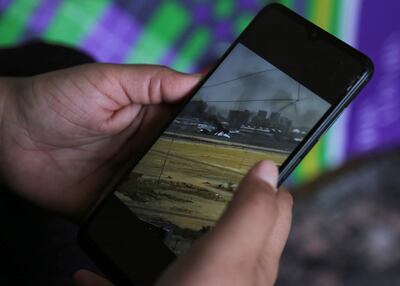The dizzying speed with which Sudan has descended into something approaching civil war has been matched only by the rapidity of the diplomatic attempts to halt the fighting, even if only temporarily. Monday’s statement from US Secretary of State Antony Blinken that Sudan’s warring factions had agreed to a 72-hour ceasefire came on the same day UN chief Antonio Guterres issued a dire warning that the violence was threatening to “engulf the whole region and beyond”.
A ceasefire at this point is the bare minimum of what’s required, given the humanitarian, security and political disaster that is unfolding. The world’s latest refugee crisis is playing out in real time as thousands of Sudanese flee abroad, with the head of the World Food Programme in neighbouring Chad saying he expects to see at least 100,000 people enter the country to join the thousands who escaped in the first week of fighting.
This latest truce — if it holds — comes at a decisive moment. Every evacuation flight carrying diplomats and aid workers out of Sudan has the consequence of making normality harder to re-establish. Lines of communication are broken, aid networks are disrupted, and re-establishing embassies is not an overnight task. All of this further isolates Sudan from the outside world and risks creating a diplomatic vacuum in which the conflict could rage on.
Although governments have a duty of care to their representatives and citizens, the departure of influential diplomats and officials from Sudan makes it even more difficult for the world to discern what is happening. The near-collapse of the internet in the country clouds the picture even further.

This is where the US intervention may prove decisive. Mr Blinken has said Washington would help “co-ordinate” between the two sides as well as with regional partners to help form a committee that would oversee the "negotiation, conclusion and implementation of a permanent cessation of hostilities and humanitarian arrangements in Sudan”.
The political and military influence of a superpower may be what is required to stabilise what is an extremely dangerous situation. However, Washington will be keen to avoid the foreign policy missteps of the past, such as in the chaotic withdrawal from Afghanistan in August 2021.
Meanwhile, both sides in the Sudanese conflict have been playing the blame game, accusing each other of hindering the evacuations. It can only be hoped that all sides now recognise a cessation as the right option to prevent the fighting from having irreversible implications.
In addition to the misery inflicted upon Sudan’s civilians, more than 200 of whom have died in the fighting, the country’s neighbours also have reason to be nervous about the spreading of the conflict and further destabilisation. Furthermore, Moody’s, a ratings agency, this week warned that prolonged conflict could have negative credit implications for neighbouring countries and development banks that are exposed to Sudan.
Moody’s analysts also pointed to the longer-term risks posed by the infrastructural wreckage left by the conflict. Damage to airports, schools, hospitals and businesses could have “lasting economic consequences”, the agency said.
When it comes to Sudan’s conflict, time is of the essence. The longer a truce lasts, the greater is the opportunity for finding a way out of the fighting. But what is destroyed in a few short days or weeks — be it infrastructure, the economy or political trust — can take months or years to repair. This is time that Sudan’s long-suffering people do not have.


